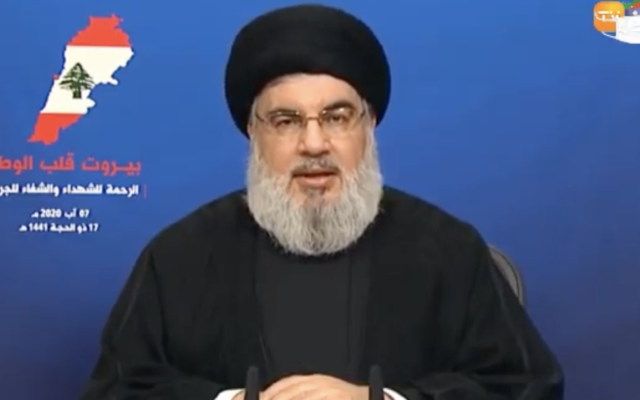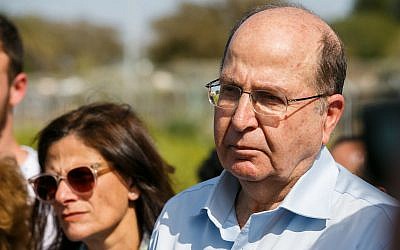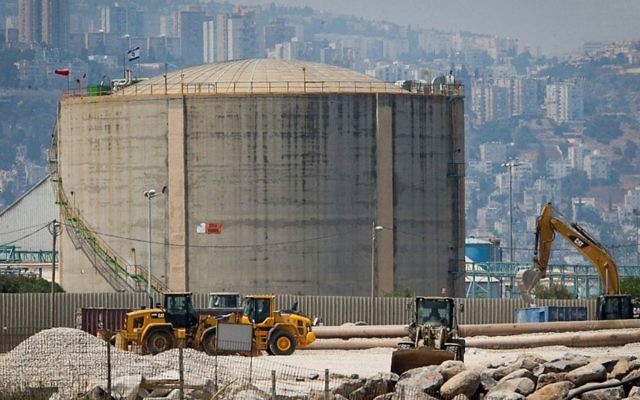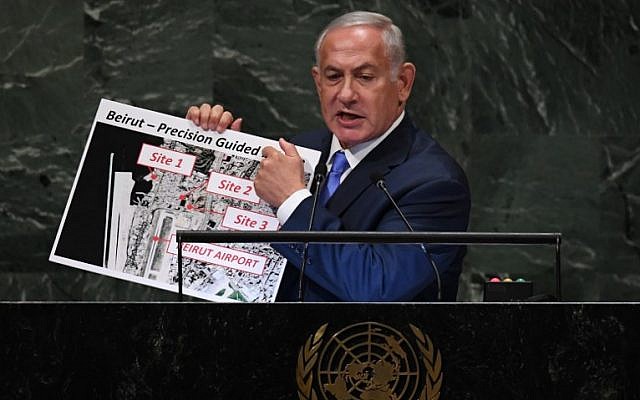
TV cites assessment Nasrallah may have intended to use stockpile that caused port blast in ‘Third Lebanon War’, notes cases in Germany, UK where Hezbollah caught with same material.
Hezbollah apparently planned to use the ammonium nitrate stockpile that caused a massive bast at Beirut’s port this week against Israel in a “Third Lebanon War,” according to an unsourced assessment publicized on Israel’s Channel 13 Friday night.
The report was broadcast hours after Hezbollah’s leader, Hassan Nasrallah, gave a speech “categorically” denying that his group had stored any weapons or explosives at Beirut’s port, following the massive explosion there Tuesday that has claimed over 157 lives and wounded thousands. “I would like to absolutely, categorically rule out anything belonging to us at the port. No weapons, no missiles, or bombs or rifles or even a bullet or ammonium nitrate,” Nasrallah said. “No cache, no nothing. Not now, not ever.”
Israel has not formally alleged that Hezbollah was connected to the Tuesday blast.
Ammonium nitrate is used in the manufacture of explosives and is also an ingredient in making fertilizer. It has been blamed for massive industrial accidents in the past, and was also a main ingredient in a bomb that destroyed a federal building in Oklahoma City in 1995. Last year, reports in Israel claimed that the Mossad had tipped off European intelligence agencies about Hezbollah storing caches of ammonium nitrate for use in bombs in London, Cyprus and elsewhere.
The Channel 13 report noted that “the material that exploded in the port is not new to Nasrallah and Hezbollah.”
It detailed Hezbollah’s previous connections to ammonium nitrate, including incidents in Germany and the UK, both widely reported at the time, in which its agents were reportedly found with substantial quantities of the material. In London in 2015, following a Mossad tip off, British intelligence found four Hezbollah operatives with 3 tons of ammonium nitrate held in flour sacks, the TV report said, citing foreign reports. A similar process led to the discovery in Germany of Hezbollah operatives with enough ammonium nitrate “to blow up a city,” the report said. Germany subsequently banned Hezbollah as a terrorist organization.
“That’s what Nasrallah intended to do in Europe,” the TV report said. “Regarding what was stored in Beirut port, the assessment is Nasrallah intended to use it in the Third Lebanon War.” (Israel has fought two wars with Lebanon — in 1982, and, following a cross-border raid by Hezbollah in which Israeli soldiers were killed and abducted, in 2006.)
Meanwhile, former Israeli army chief and ex-defense minister Moshe Ya’alon told a Saudi news site that a blast in a large Hezbollah weapons depot at the port preceded the explosion of ammonium nitrate.
area with other members of the party on March 13, 2019. (Flash90)
Ya’alon, of the Yesh Atid-Telem party, was quoted by the Elaph Arabic website as saying Hezbollah had been aware of the material’s presence there and had control over the port.
He said Israel had warned Lebanon about Hezbollah’s weapons stores and stockpiling of dangerous materials in Beirut and elsewhere in the country. He added that it was up to the Lebanese people to choose independence or continued servitude to Iran through Hezbollah.
The Channel 13 report also noted that Nasrallah, ina 2016 speech, threatened to fire missiles at an Israeli ammonia storage tank in the northern port city of Haifa. “Lebanon has a ‘nuclear bomb’ today,” Nasrallah said in the speech. “The idea is that some of our missiles, combined with the ammonia in Haifa, will create the effect of an atom bomb.” (The tank has since been emptied out.)
And it also cited a speech by Israeli Prime Minister Benjamin Netanyahu to the UN General Assembly in 2018, in which Netanyahu accused Hezbollah of storing missiles and other weapons in civilian areas. The prime minister alleged that one such site was “on the water’s edge” in Beirut.
Preliminary evidence released by Lebanese officials indicates that the explosion was connected to 2,750 metric tons of highly explosive ammonium nitrate which was left unsupervised in the port for almost six years. Documents allege that customs officials asked to move the vast trove numerous times but never received a reply.
In May, Israel’s Channel 12 reported that the Jewish state carried out a months-long delicate operation to assess Hezbollah’s operations in Germany and presented its findings to German intelligence and law agencies. Mossad reportedly gave Germany information about warehouses in the south of the country where Hezbollah stashed hundreds of kilograms of ammonium nitrate. Israeli intelligence was also said to have handed over details of key individuals in Hezbollah’s operations in Germany.
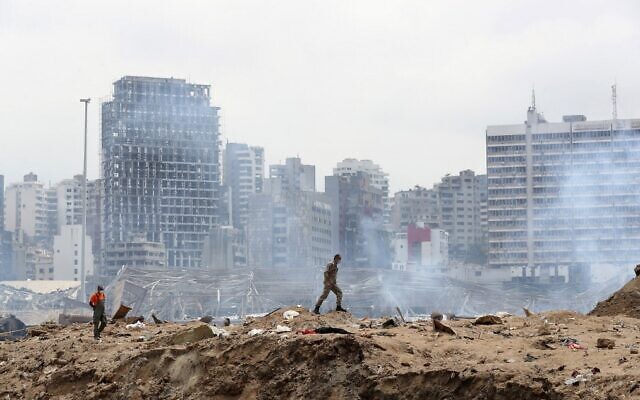
The Friday Channel 13 report speculated that Nasrallah is fearful of an international probe of this week’s blast, possibly out of concern that Hezbollah might be implicated.
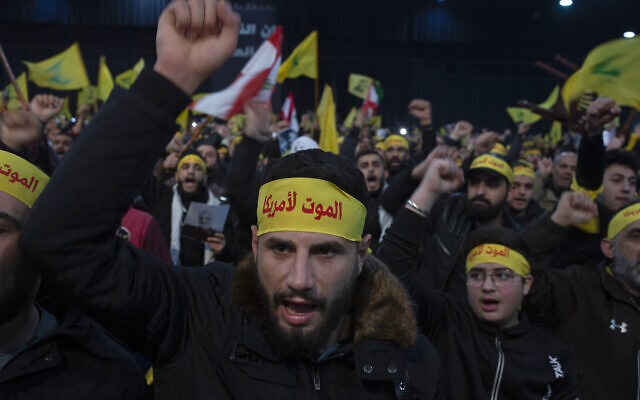
Amid rising tensions with Israel in recent weeks, Nasrallah had originally intended to address the country on Wednesday, but postponed his speech after Tuesday night’s port explosion sent the country reeling. So far 157 people have been confirmed dead and over 5,000 wounded. Around 300,000 Beirut residents were rendered homeless as the blast tore apart homes miles from the port.
Israel firmly denied initial speculation that it had anything to do with the explosion, has sent condolences, and offered medical aid. Senior Hezbollah officials, speaking on condition of anonymity to Lebanese media, have been equally insistent that neither Hezbollah nor Israel were involved.
(Times of Israel).
